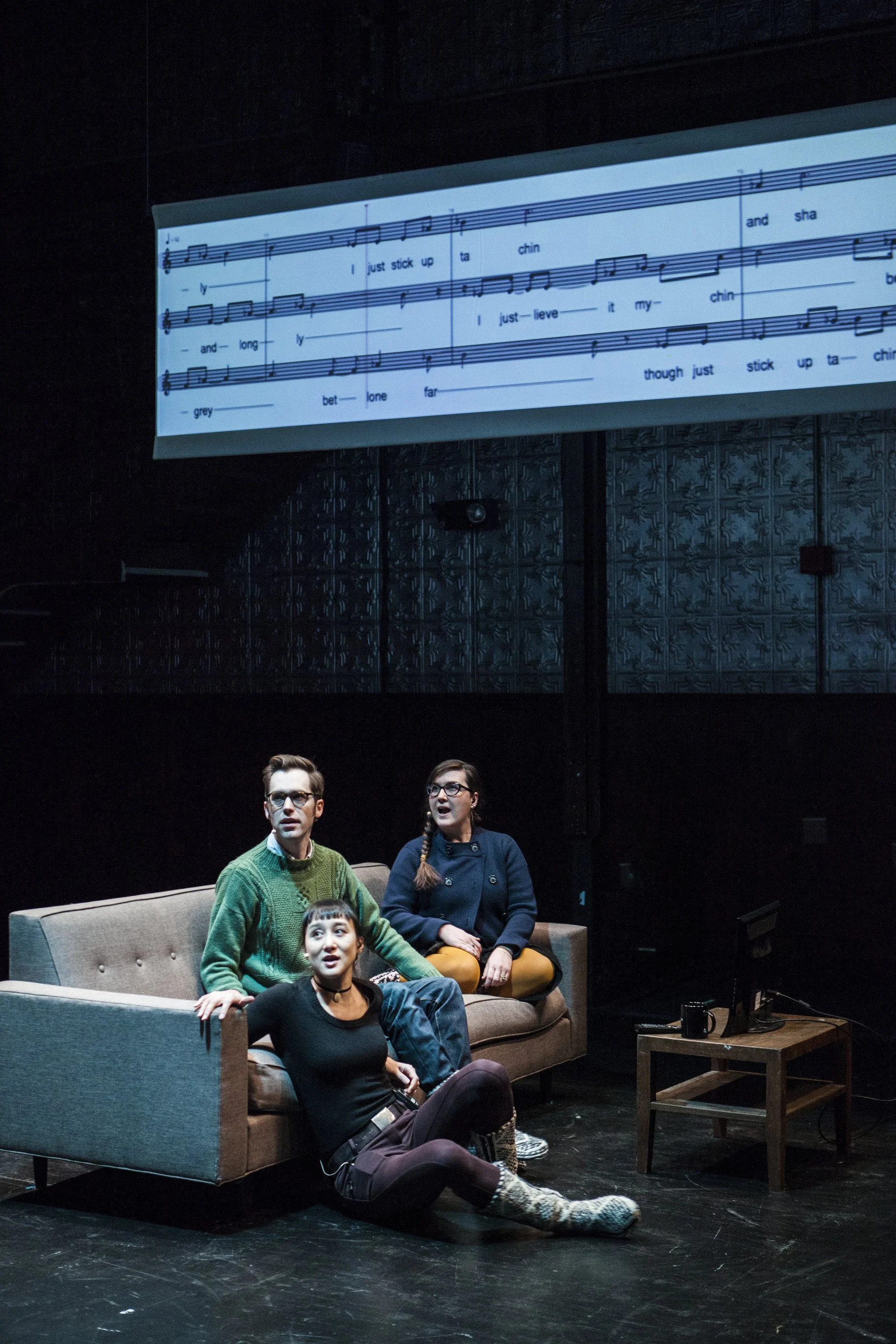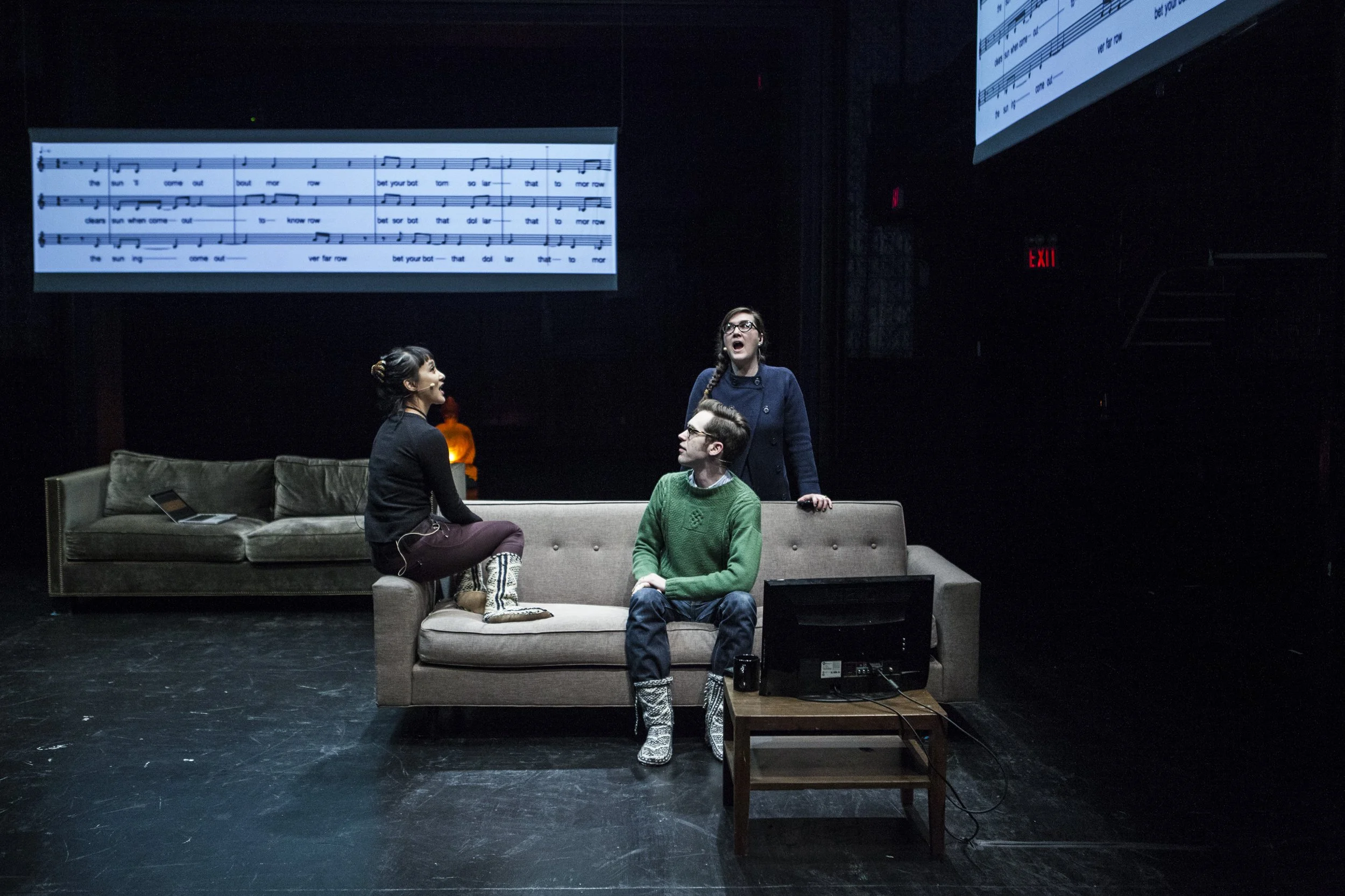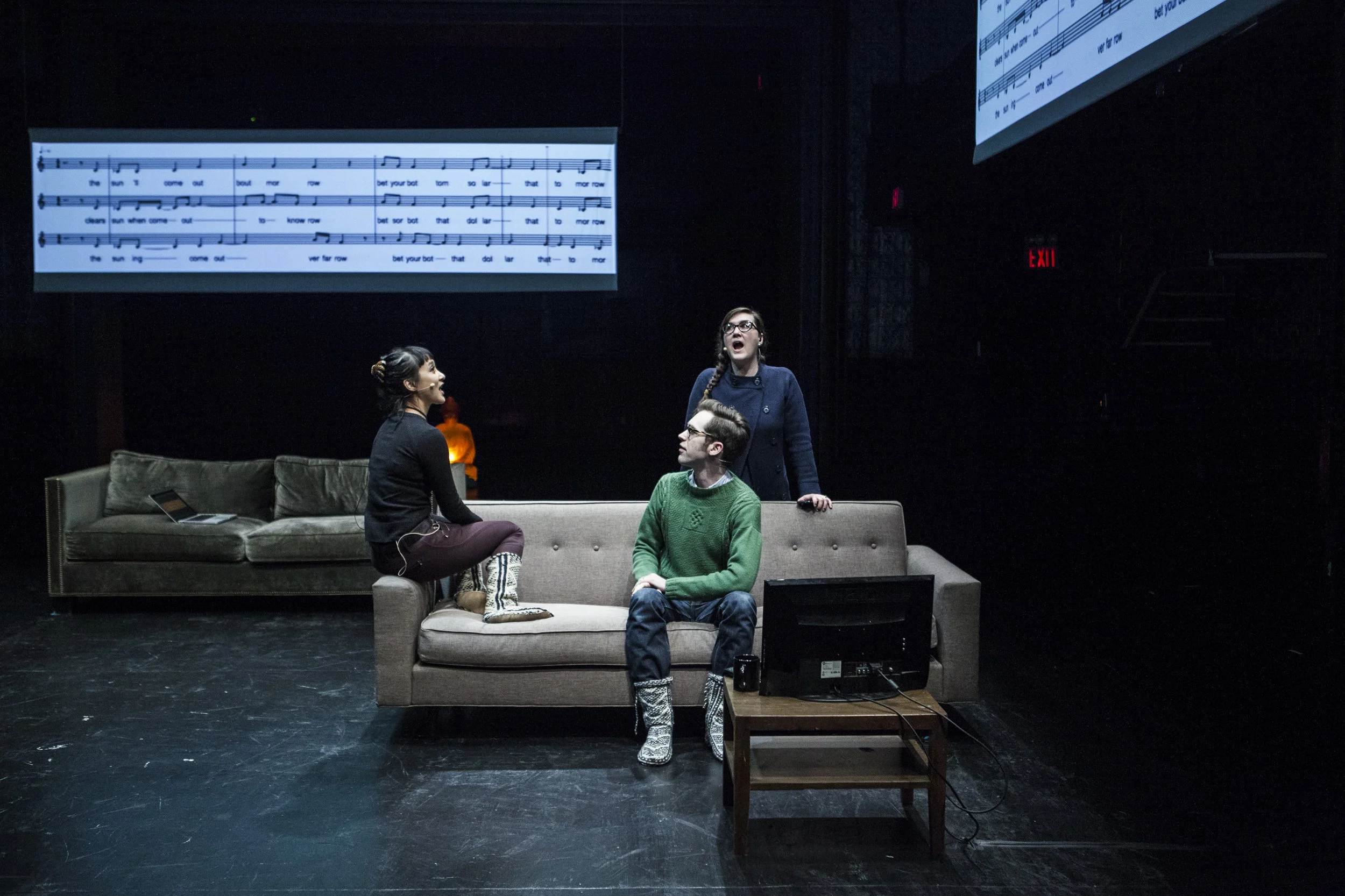By Walker Art Center’s Senior Curator of Performing Arts Philip Bither
Initially scheduled for Jan 27-29 during The Great Northern, algorithmic theater inventor Annie Dorsen’s Yesterday Tomorrow is a work suited to our technologically drenched and environmentally/politically anxious times, celebrating the potential transcendence of living in the moment. We invited Walker Art Center‘s Senior Curator of Performing Arts Philip Bither to chat with Annie as part of The Great Northern Reflective Writing Commissions ahead of the presentation, now rescheduled for Jul 21-23.

Philip Bither: Your work achieves a rare mix of the technological and the theatrical, the mechanical and the dramatic, between formalism and emotion. Why do you feel this balance is important, and what are some of the strategies you employ to achieve it?
Annie Dorsen: There are usually two different starting points for me on a piece. One is the algorithm, a procedure I am interested in using, or something I’m curious to learn more about. And the other is the narrative aspect, maybe something going on in my personal life, or a feeling or a desire I’m experiencing. And when those two tracks come together I feel ready to move forward. Yesterday Tomorrow began with a little research into how evolutionary models work. And then the idea of turning one song into another came from there, and from there the decision to use these two songs came more or less immediately. A little while later, when I was working on a kind of beta version with the programmer Dylan Fried, I started to get excited about what the algorithm might produce musically, emotionally, and theatrically. I suppose what interests me is how these mathematical processes impact our day-to-day lives, the structures of feeling they create, how they organize and present information, or give rise to particular ways of being. What I think of as the dramaturgy of algorithms.

PB: There is a philosophical lesson built into the structure of your work Yesterday Tomorrow… and it may be subtly reinforced by the Buddha sculpture sitting far upstage overlooking the proceedings – do you consider Yesterday Tomorrow to be a spiritual work? And if so, how?
AD: One of the first things I knew about Yesterday Tomorrow was that it was a piece about time and metaphor. And about different ways of measuring time: the tempos and time signatures of the music, the narrative time of the lyrics, the time of the performance itself, the computational time of the algorithm at work, and the audience’s experience of the passage of time while they listen and watch. So the spiritual side of it has to do with all that – no matter which kind of time we are thinking about, we are still only living in one present moment after another. I like what William James wrote about this. He distinguished between the “obvious past, the specious present, the real present, and the future.” The specious present is a fictional version of the present, it has a little duration to it, a few seconds or up to a minute. That’s the position from which we construct our understanding of past, present, and future. And this is a bit related to some ideas from Eastern philosophy, that our anxieties, regrets, hopes, fond memories, and so on are all just fantasies we create in the long now of our lives.
PB: Indeterminacy plays an important role in the work too, and the influence of John Cage seems to be very present. How does Cage’s thinking, and in particular around your programming randomness into this work, add to the piece’s success? How does it serve the drama built into the work? Are there lessons randomness can teach us in our lives?
>
“Chance is not only playful and exploratory – it’s also a little scary, and sometimes cruel.”
AD: Cage has the best definition of theater: something to see and something to hear. Which means… it can be anything. It’s a bracketed-off section of empty time and space that we fill together. So, as with life, you have to decide how you want to fill it. What do you do with all that freedom? Chance is not only playful and exploratory – it’s also a little scary, and sometimes cruel. Cage doesn’t write about that aspect so much, but Bataille does. He writes about chance as an aspect of life which is incomprehensible, impossible, disordered, unfair, impersonal, meaningless. But, you know, ha, in a good way. It’s also where he finds poetry, spontaneity, and love. “Without horror and death or without the risk of them, where would the magic of chance be?”
It might be a good idea to recuperate the Bataille notion of chance. Statistics-based technology is used so often to try to make things predictable, certain, no surprises. It’s a truly depressing vision of the future. But luckily, I guess, all kinds of unpredictable things still happen. Not only pandemics. Sometimes good things, too.
PB: Given that you turned over the role of composer and conductor to a computer, what has the response been from contemporary composers who have seen and heard it? Did the AI automation feel like a threat to their job security (ha!)?
AD: Lol no. I should say first that I worked with the brilliant composer Joanna Bailie on the piece, and her knowledge and artistry are all over it. She had a big impact on the final form of the algorithm, and to the extent that Yesterday Tomorrow has any musical integrity, Joanna is largely responsible. So I would not say that the computer process was the composer. It was more like a material we worked with. And then, historically, out of all the artistic disciplines music has probably had the closest and most natural relationship to mathematics. Starting, I guess, with Pythagoras, in the Western tradition. Composers tend to be pretty early adopters of new technologies, the first to play around with what can be done with them. In fact, it occurred to me back when I was starting this kind of work that in a way I was just translating some compositional techniques from music to theater. Early on we performed the piece at Ultima, a contemporary music festival in Oslo. And the response there was really gratifying, they totally got the piece. Which was obviously very nice for Joanna, but it was important to all of us really. I always hoped the piece would have as much coherence as a piece of music as it had as computer art and as theater.

PB: Thinking of the increasing role AI plays in our lives, do you see Yesterday Tomorrow as a celebration of AI’s creative potential or a cautionary warning about AI and more broadly technology in general, on human society?
AD: I try to avoid getting into techno-utopianism or dystopianism. There’s so much hype and exaggeration around AI, both on the positive and negative sides. In the end, we have decisions to make about how we want to use these tools. There’s nothing inevitable about any of it, it’s not fated that social media will be an incubator for misinformation and neo-fascism, or that every website we visit will spy on us, or that cops will use facial recognition software to surveil and harass people. These are all choices. As currently configured, things look pretty terrible. But like everything else, it’s a matter of political will. And a matter of who gets to make those choices, who chooses who gets to make them, and to whom are those people responsible.
PB: You made Yesterday Tomorrow nearly seven years ago. Do you feel the work resonates differently now, after a period of such intensive societal upheaval, continuing pandemic, and loss?
AD: In a funny way no. When I made the piece, I was thinking of how no matter what happens in life, we still get up and brush our teeth every day, make tea, sit on the sofa. I was imagining, you know, right outside the unseen window, wars are starting and ending, babies are being born, illnesses, deaths, people falling in and out of love… all the narratives go on. Our personal narratives, and larger collective narratives. The big things and the small things. If you took a photo of someone every day for a year, you might only ever see them on their sofa, one day with an arm over the back, the next day with their feet up, sometimes scooched a little further to the left or right. And very often, or almost always, staring at a phone or a laptop. That’s where the movement score of the piece comes from – it’s about all those consecutive days of sofa sitting strung together. From that perspective, the pandemic, Jan 6, the wildfires in the Arctic – none of these things change my sense of the piece, since it was all sort of baked into the idea.
PB: In terms of your algorithmic theatre creations, you’ve referred to this work as your “optimistic” play. Despite the challenges and setbacks of the last few years, do you feel like the optimism of a final song like “Tomorrow,” Annie’s assurance that “Just thinkin’ about tomorrow, Clears away the cobwebs and the sorrow” harder to justify today, or is it more important than ever?
>
“I’d hoped it was going to be my optimistic play! Maybe it was my ‘what is optimism actually’ play. ”
AD: I don’t know if it’s really my optimistic play. I’d hoped it was going to be my optimistic play! Maybe it was my ‘what is optimism actually’ play. The thing about sentimentality, both the nostalgia of Yesterday and the kind of irritating chin-uppiness of Tomorrow, is that sometimes those feelings are real. But these days I’m not exactly sure what is a real feeling. So, for example, I know what I’m supposed to say to your question: of course we must stay optimistic, nihilism is a luxury we can’t afford! And I do believe that. But somehow I can’t quite bring myself to say it. I’ve been reading Greek tragedies lately, so maybe I’m just reckoning with the hard truth that optimism, pessimism, who knows, the consequences are unpredictable.
PB: The climate crisis is clearly more dire than what we knew in 2015 when you made the piece. Technology and AI in particular gives reason for both hope and worry. For instance, the advances that AI-driven data mining, climate modeling, and in the creation of urban smart grids, just as a few of the many examples, are encouraging, but are perhaps counterbalanced by the enormous amount of energy needed to drive them, not to mention in more general terms our overall reluctance to make the dramatic shifts necessary to address the crisis. Are you finding yourself more pessimistic or optimistic on the climate front? What role, if any, can/should theater or performing arts play in the face of such urgent threats?
AD: Judith Malina wrote that art creates the culture, and the culture creates the politics. I keep that in mind whenever I’m tempted to think that it doesn’t matter very much what artists do. It does matter, it matters very much how we choose to engage with our situation. I’ve been… let’s say, agitated by what I see as a giant artistic capitulation to some of the worst impulses and trends around new technologies. I’m thinking in particular of blockchain technology – cryptocurrencies and NFTs and DAOs and all that. I wish someone could tell me what these things are actually good for, other than evading securities regulations, and turning the whole world into a casino. Stephen Diehl has written very well on this. I highly recommend his blog posts. So much of what passes for experimental art right now is basically just propaganda for big tech, or worse, for Ponzi scheming crypto bros. Assuming there’s a difference between the two. I find it almost heartbreaking that so many artists are jumping on the bandwagon. As Brian Eno said recently, oh great, now artists can be little capitalist assholes too. And if that weren’t bad enough, these particular slot machines are so energy-intensive it’s mind-boggling. Bitcoin uses as much power as the entire country of Argentina. A single NFT uses as much power as a resident of the EU uses in a month. People are working on a lower energy cost NFT. And it will be marketed as ‘green.’ And I will get even more agitated.
Not to mention that so far, in exchange for all these negative effects, the technology gives basically nothing in return. It’s devastation for the climate, bad for our civil rights, for our political and artistic culture, and for the economy – but, um, yay, some guy in LA made a gazillion dollars selling a jpeg to the greater fool.
On a more positive note… well. I’m not sure what my more positive note is. We have big problems.
>
“Theater is good because it’s already a simulation, it already plays with a double reality.”
PB: Once we emerge out of the pandemic, what do you see as the future of theater and the live performing arts?
AD: Oof, that really is the question. I’m not very good at predictions. I suppose post-pandemic will be pretty much the same as pre-pandemic? Or the ways in which it’s different will be hard to describe because the changes will have crept up on us. People who liked performance before will be eager to come back to it. People who didn’t like it still won’t.
I do hope that the field doesn’t get too into VR/AR and all that immersive stuff. Theater is good because it’s already a simulation, it already plays with a double reality. Things are really happening in front of you, but it’s a strange kind of happening. It’s rehearsed, it’s artificial, but it’s also real, and if you felt like it, you could get up from your seat and walk on stage and interrupt it. We should not be too eager to give that up. It’s our superpower. All the things that make performance inefficient, inconvenient, hard to scale (as the techies say), those are exactly the things that make it so valuable and necessary.

